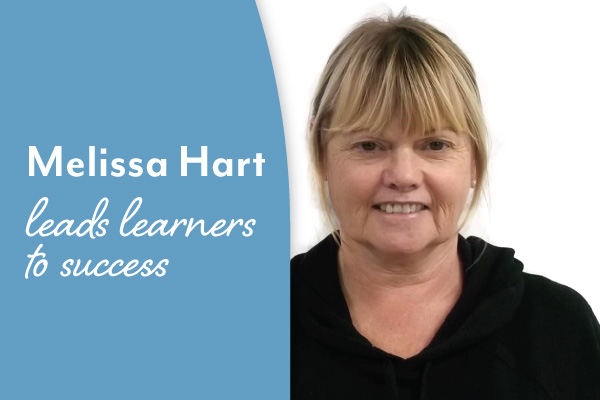Change is constant in all aspects of life, from nature to technology, work to relationships and everything in between. Having the skills required to navigate and adapt to changing environments and situations can make life easier. Not only that but being adaptable can help you advance your career across any sector too.

Workplaces continually grow and shift over time and being able to adjust to these changes means you are better equipped to thrive at every stage of your career. While a number of adaptive skills may come naturally to some, they can also be learned and developed with training, reflection and practice. Next time you’re assessing the skills you have to be a valuable employee, don’t discount the significance of adaptive skills.
What does adaptability mean and what are adaptive skills?
When considering just how important is it to be adaptable and develop adaptive skills, and what those skills are, it’s worth reminding ourselves of what adaptability really means:
Adaptability is defined as the ability and/or willingness to change to suit or adjust to varying conditions.
With this in mind, adaptive skills are the skills which allow us to adapt and handle changes in a positive way. In the past, these skills were sometimes known as soft skills or interpersonal skills. They are core skills for any workplace and play a key role in life outside of work too.
Some of the most important adaptive skills to focus on developing — especially when exploring an aged care career — include:
Communication skills:
Strong skills in speaking, writing, listening and reading are crucial to build meaningful relationships in aged care, or in any workplace. This includes speaking at the right volume and being clear, friendly, confident and respectful. Communication also extends to the effective use of non-verbal cues such as body language.
Problem-solving skills:
Come up with viable ways to solve a problem is a highly useful skill in the workplace. When solving problems you must know how to call on the ability to research, analyse and make decisions.
Teamwork:
In an aged care career, but also in just about any job, there will be times when you must work as a team. To be a productive member you will need teamwork skills. These include communicating, taking responsibility and having awareness of the dynamics of a team and how you can best play your role to achieve the desired outcomes.
Organisational skills:
Time management, planning, keeping track of what needs to be done and setting goals are all part of organisational skills. With well-developed organisational skills you are able to work to your fullest potential while staying calm and collected.
Empathy:
Working with other people, and particularly with vulnerable individuals, empathy is vital. When you are able to put yourself in another person’s position and see situations from their perspective you can better advocate for them and make decisions that are respectful and considerate.
Observance:
Being focussed on the task at hand is great, but can also be critical to remain observant at all times. Attention to detail and being able to be present in the moment can ensure you do the best job possible. In aged care, being observant can make a profound different to the health and wellbeing of a person in your care. It could be noticing a change in a person’s condition or noting something that has not been attended to.
When you work on developing these skills, you are well on your way to being able to navigate evolving situations with care and precision to make smart choices and adapt to the environment within which you are working.
The value of adaptability in aged care
The continually evolving pandemic situation is a good example of when adaptability is needed. Over the last few years aged care has faced a host of changes to best practice across the sector. From new visitation protocols, to mask-wearing and managing prevention and control of a new virus that is notably dangerous to the elderly. Aged care workers with well-developed adaptive skills have been able to pivot to the needs of the sector and care recipients. The result is less stress and sense of disruption for the individual, not to mention those in their care or in their team.
Adaptive skills or interpersonal skills are human qualities — perfect for working with humans! When a person has well-developed adaptive skills, they are more likely to be able to thrive in aged care and contribute positively to the lives of the elderly as well as the sector more broadly.
How to improve adaptability skills
Whether you feel that you have strong adaptability already or you’re working on developing your adaptive skills, there is always room to grow. Here are a few tips to help you develop and improve your adaptability skills now and well into the future:
Develop a growth mindset:
This means trying new things, taking on new challenges and looking for opportunities to gain more knowledge and contribute in new areas.
Gain an understanding of your environment and any changes:
Make knowing your working environment a priority, and stay on top of changes as they come. Read the updates in the sector and be prepared for what’s coming in the future.
Set personal and professional goals:
If there is a particular adaptive skill you want to work on, make note of it and strive to improve. Goal setting is imperative to improvement that you can see and feel proud of.
Acknowledge changes and accept them:
It can sometimes feel like a knee-jerk reaction to resist change. In some instances, the change might be something you disagree with and can take action in addressing. Often however change is unavoidable or necessary and the quicker you can acknowledge and accept, the better off you will be.
In our aged care courses, we focus on supporting our learners to develop their adaptive skills throughout their training. We give them the tools to not only work on these invaluable skills while completing their course, but how to continue to develop them ongoing.



